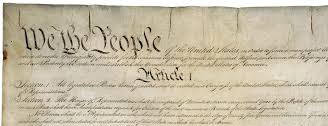In 1884, Republican James G. Blaine of Maine was running for president against Democrat Grover Cleveland of New York. A few days before the election, at a dinner at a posh restaurant in New York, a supporter of Blaine, the Reverend Samuel Burchard, delivered a speech in which he called the Democratic Party the party of “rum, Romanism, and rebellion.” The word rebellion referred to the Civil War and southern secession from the Union; the references to rum and Romanism were a slur on Irish Catholics, a group that Blaine was trying to court rather than insult. The quotation quickly got out in circulation, and Blaine lost New York State by a razor-thin margin, thus losing the election that he otherwise would have won.
I was reminded of this Saturday night, October 27, when I heard that one of the warm-up speakers at Trump’s rally at Madison Square Garden made a number of racist remarks that the Trump campaign had to disavow. It needs to be remembered that although Trump has referred to certain countries as s***hole countries and has made slurs on a number of immigrant groups, including Haitians in Springfield, Ohio, who he falsely (yes, falsely) says are eating people’s dogs and cats, Trump is still trying to win over enough Black and Latino voters in the swing states to win those states’ electoral votes.
Will this make a difference? There are two main reasons why it may not. First, a lot of people have already voted. Second, Trump has earned so much bad publicity over the years that it’s really hard for any new incident or revelation to shock anybody at this point. On the other hand, though, given how close this election is looking to be, he doesn’t have to lose very many votes to lose the election.
This article in Politico discussion the 1884 incident came out back in 2015, at a time when the 2016 primaries hadn’t yet begun but it was already clear that he was a serious contender. And here, also in Politico, is their coverage of last night’s rally and its aftermath.
Now, a quick review of how things are looking:
The race for the presidency is a tossup, and it’s too early to gauge whether last night’s incident will make a difference. We could get either Trump or Harris.
In the Senate, where the Democrats currently have a very narrow majority, the Republicans have the advantage in this year’s elections: the Democrats have to hold their seats in Pennsylvania, Wisconsin, Michigan, Arizona, Nevada, Ohio, Montana, and Maryland just to have a 50-50 tie, and a 50-50 tie will only do them any good if Harris and Walz win so that Walz can cast tie-breaking votes for the Democrats. In those races, the Democrats will have the hardest time winning Montana, while Pennsylvania and Ohio are considered tossups. It should be noted that Ohio is not a state where Harris has much of a chance of winning–it’s no longer considered a presidential swing states–so the Democratic incumbent for Senate there will have to rely on crossover votes from Trump voters to win. There are some such voters; it remains to see how many.
The House could go either way.
If Trump wins, based on the math described above, to all intents and purposes he can count on a Republican majority in the Senate. Since it’s the Senate that confirms the president’s choices for cabinet officers, federal judges, etc., a Trump presidency with a Republican Senate will mean that he can probably get away with appointing all the Trump-loyal attack dogs he wants to positions like attorney general (the one who decides who gets prosecuted) and judgeships (though he can only appoint a judge when there’s a vacancy).
But if Trump wins, the House can still go Democratic. Again, the House can go either way, regardless of the presidential vote. If there’s a Democratic majority in the House, Trump won’t be able to get Congress to pass much of the legislation he’ll be desiring. And even if the Republicans have a majority in both chambers, the filibuster in the Senate (the fact that it takes 60 senators to agree on most regular legislation) can still be a brake on Trump’s legislative power. But again, there’s a lot he can do without the help of Congress, and again, a free hand in whom he appoints to office with him will make a difference.
And if Harris wins? The trouble there is that she’s still not likely to have her party in the majority in the Senate, which means that she’s not likely to get much of her own legislative agenda passed. On the campaign trail, like other candidates for president, she’s promising to do all kinds of things that the president can’t do without the cooperation of Congress. But because the average voter doesn’t understand that (though I hope you do), in the next midterm elections the Republicans will be in a position to criticize her for not getting anything done.
So the outlook isn’t wonderful, no matter how this election goes.



